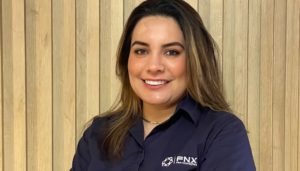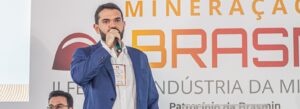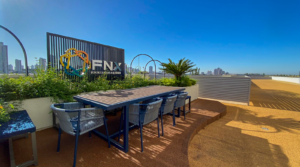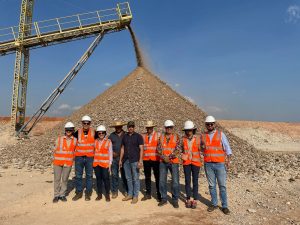One year ago, mines in the Baixada Cuiaba region began the certification process for the Responsible Switzerland Gold initiative (Swiss Better Gold – SBG). During the period, three mines received the seal and others are in the process of being regulated. The expectation is that they reach full compliance with the established criteria and that Mato Grosso becomes the pioneering state in this implementation – six mines producing gold in a responsible way.
The project arrived in Brazil in September 2021 through Fênix DTVM, a financial institution authorized by the Central Bank to operate in the purchase and sale of gold as a financial asset, responsible for bridging the gap between the mines in the Baixada Cuiabana with the SBGA. “We signed a term of commitment for the elimination of mercury, which will be an initiative between the SBGA (Swiss Better Gold Association) and the mines, using the percentage related to Technical Assistance from the bonus already accumulated for the gold exported to Switzerland after the certification of these mines” , said the SBG consultant in Brazil, Erika Cavalheiro Halla.
To meet Swiss gold buying standards, Erika visits the mines and identifies what needs to be improved, a way to open up a market for small and medium scale mining. In 2021, the Santa Clara mine received certification, while, in 2022, the Chimbuva and Cangas II mines were certified. Part of the project is the development of a plan to enable the gradual reduction and elimination of the use of mercury in the production of the metal. The consultant says that two fronts were carried out as part of the Continuous Improvement Plan defined by Swiss Better Gold for each mine: awareness of occupational health and safety and awareness of rights and fundamental principles at work.
After being certified, the mines start to receive a bonus of US$ 1 for each gram exported to Switzerland, which is one of the biggest buyers of this mineral in the world. Of the total, 70% is destined for the development of social and environmental improvements, 15% for the promotion of technical assistance, which includes, among several measures, the development and implementation of technologies for the reduction and elimination of mercury, and another 15% will be reapplied for the project maintenance and improvement.
The director of operations at Fênix DTVM, Pedro Eugênio Gomes Procópio da Silva, highlights the importance of the private sector in encouraging good practices. “It is possible to invest in improvements and be sustainable, not only in terms of environmental issues, but also economically to sell gold from small and medium-sized mining by promoting a positive culture for these miners,” he said.
Source: Brazil Mineral
Photo: Lorena Duarte





One Response
Muito Bom